Eugenio Nasarre: "The EU was born as a peace project, but also in defence of our values, which are our hallmark"
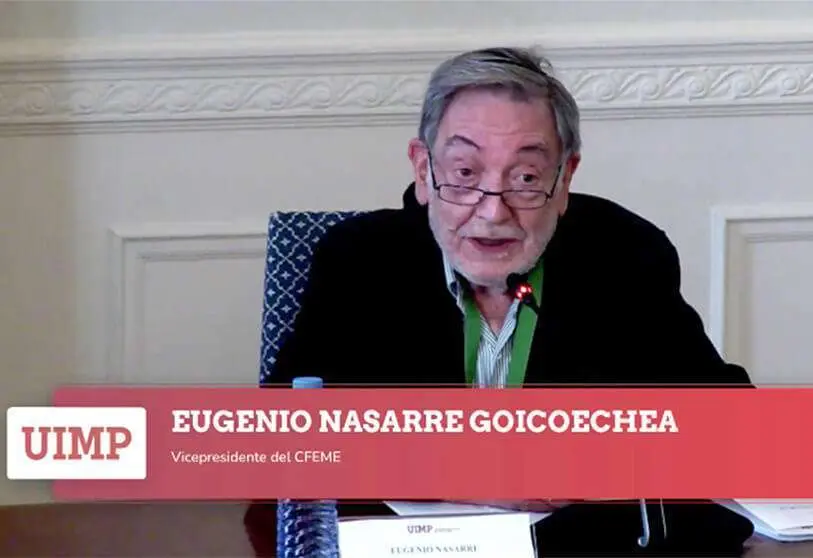
The Conference on the Future of Europe has held a new seminar in Santander, with the aim of bringing together, once again, representatives of the institutions and civil society to address the challenges facing the European Union in a context marked by uncertainties. In addition to the challenges that the EU was already facing, the conflict in Afghanistan has now been added, a crisis that has brought the debate on Europe's role in foreign policy and its influence to the table.
The European Movement, this time in collaboration with the Menéndez Pelayo University, opened the conference with a presentation by the President of the European Movement (CFEME) and Professor of International Relations at the Complutense University of Madrid, Francisco Aldecoa, who expressed his joy "to be able to be here with this course, this being the tenth that he has held with the Menéndez Pelayo University.
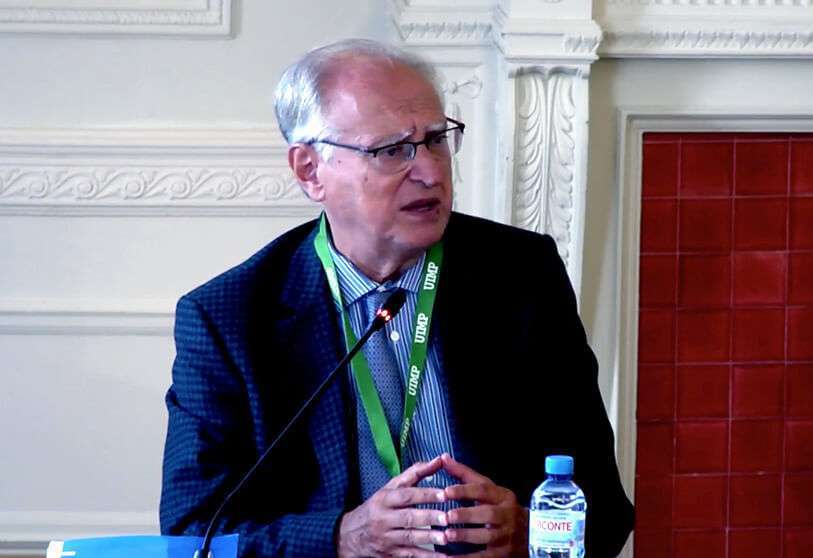
"For us the Conference is a central issue, it is probably the first course where there is a large group of members on the Conference of Europe. It is the first time that we will be able to discuss the theme of the Conference in a forceful way," he said.
In the same way, he pointed out that within the framework of the conference "it is the ideal moment to be able to think together about the future of the Conference and we are grateful that it can be held here at a time when the conference has little intervention in the media and yet it will be the milestone of our time".
On the other hand, the vice-president of the CFEME, Eugenio Nasarre Goicoechea, went on to say that "fortunately, despite the difficulties, we have been able to resume what is already a priority in our activities".

The Vice-President referred to the current problem in Afghanistan, stressing that "the crisis in Afghanistan has erupted and it is an extremely serious crisis with consequences that will affect the future of the EU, it is a challenge to the EU itself. It is the time for prudence in the face of the challenges we face, which consist of focusing on what unites us, on concentrating our work on our fundamental values".
"The crisis in Afghanistan has brought us face to face with reality, and what the crisis means must be at the centre of our attention. Beyond the humiliating exit from Kabul, beyond the refugees, what this implies is that it has cracked. The EU was born as a peace project, but also in defence of our values, which are our hallmark", he stresses.
Nasarre points out that "when the EU was created, it was threatened by the Soviet world, which did not respect freedom (...) our values have weakened in the world, and we can no longer count on the US as a protective mother. We need a higher synthesis, and that synthesis today is the Europe of defence; it is about the common commitment to the sovereignty of states, it is a problem of political will". To this Nasarre believes that "if the conference on the future of Europe does not deal decisively with the Afghan crisis, Europe will not be up to the task".
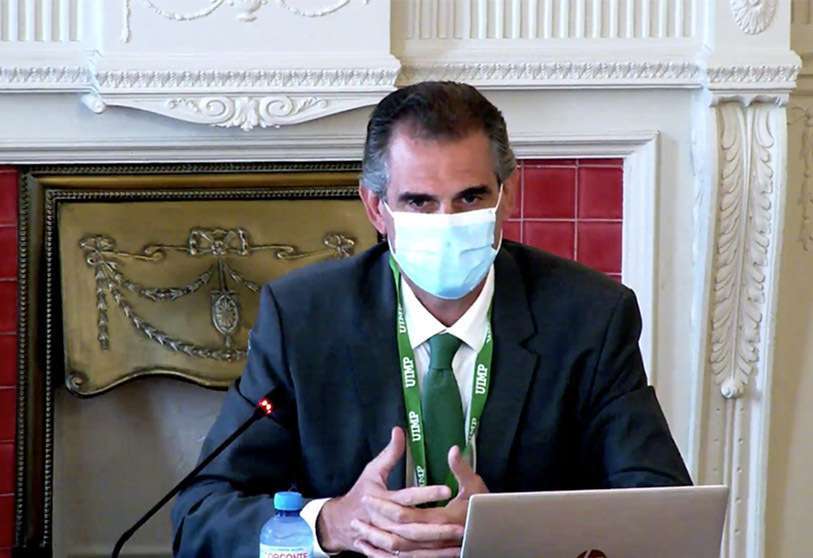
"Angela Merkel is leaving the chancellorship, we pro-Europeans owe her a debt of gratitude and applause, if I could sum up her political vision in one sentence, Merkel was faithful to European values," he said.
"In the three crises that Europe has gone through during her mandate, the euro crisis, the refugee crisis and the response to COVID, her responses have been positive because she has stood firm in the defence of European values. The scenario that opens up after Afghanistan is the post-Merkel era and that is one more uncertainty," he concludes.
On the other hand, the president of the CFEME and Spanish representative in the Plenary of the Conference on the Future of Europe, Francisco Aldecoa Luzárraga, addressed the next block of the seminar, which dealt with the question of the Conference on the Future of Europe and the participation of organised civil society.
In this sense, Aldecoa stressed that "this is the first time that there has been an exercise between civil society and representatives, the first time that a dialogue of these characteristics has been proposed, especially at a constitutional level. There are two main actors, the institutions and civil society, and I believe that it will provide important proposals, but I don't know their scope, solutions will emerge... what I don't know is how far they will go".
"The key will be for the EU and citizens to join forces, as well as the media. The first fundamental issue is that of membership. The proposal of the chairwoman of the commission is not fulfilled because there is no equal representation of representatives of institutions and civil society," he criticised.
"Citizens must be equally involved in the reform of the treaties. We have to start from the fact that, as a result of the COVID crisis, the European institutions took fundamental decisions. The recovery plan is a clear novelty that was federal in character, funds were distributed according to needs, that is federalism," he added.
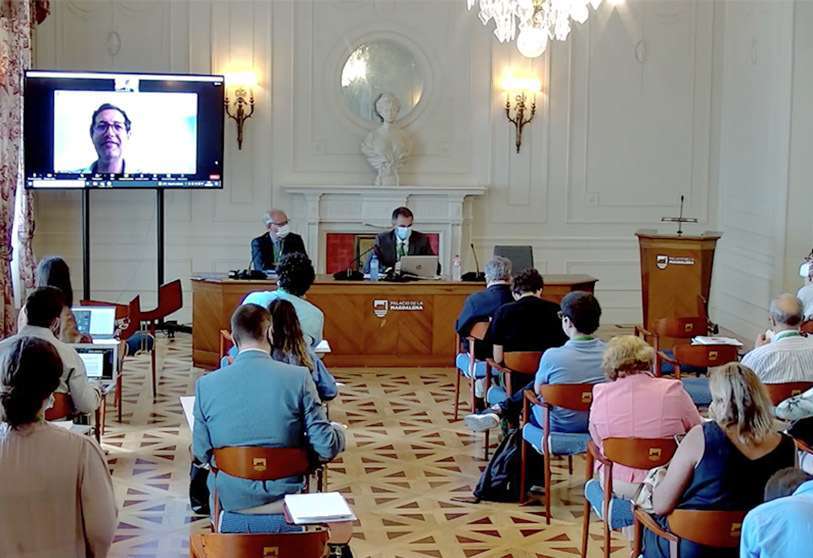
"The conference has to be shaped by listening to citizens and civil society, we defend the reform of the treaties (...) if we do not get civil society to make proposals, it will not have the weight it deserves in this exercise, which is to think together between institutions and civil society", he concludes.
"Green pact, digital development, promoting inclusion, improving regional participation, incorporation of Porto, agreement on migration, competences in health... these are the main debates around which the conference revolves and on which citizens must have an influence".
"The conference is very important, there is a real need, there are things that cannot be done individually, we will not make any progress if we do not give more weight to civil society. We have to go to the citizen and civil society, both representatives and governments are convinced that reforms have to be made".
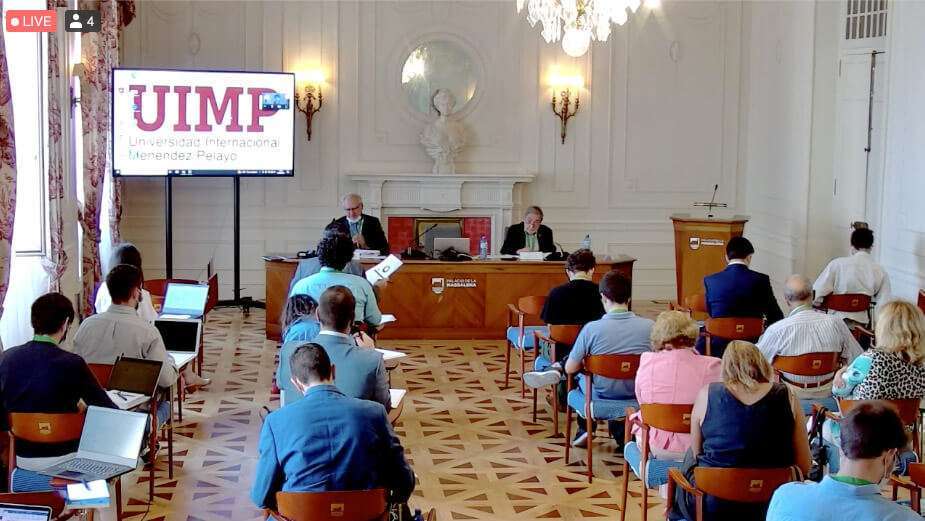
On the issue of Afghanistan, the president affirms that "the EU will take on new responsibilities in this new situation in Afghanistan". In the same way, he believes that "we had nothing to do with Afghanistan, it was a US operation, we were there to defend and support the US, the EU has reluctantly gone along".
In addition, "the EU has spent an enormous amount and will continue to spend because it is our commitment in terms of humanitarian aid. I am convinced that with the Afghan conflict the EU's effect will be in foreign policy and in working in a rapid decision-making capacity, which emphasises the EU's role in the world".
For his part, in the second block of the morning, Domènec Ruíz Devesa, a member of the European Parliament and of the Plenary of the Conference on the Future of Europe, addressed the question of "the Conference on the Future of Europe and the federal future of the European Union".
Europe has experienced "the euro crisis, the Russian invasion of Crimea, Brexit, the transformation of China into a geopolitical actor, the world has changed radically in 13 years". Now Europe must "move forward in a federal key, to obtain a new treaty that goes beyond Lisbon, we must add more competences, there are provisions in the treaty that allow us to move forward in, for example, a fiscal union that we still do not have, as well as the approval of the multiannual budget".
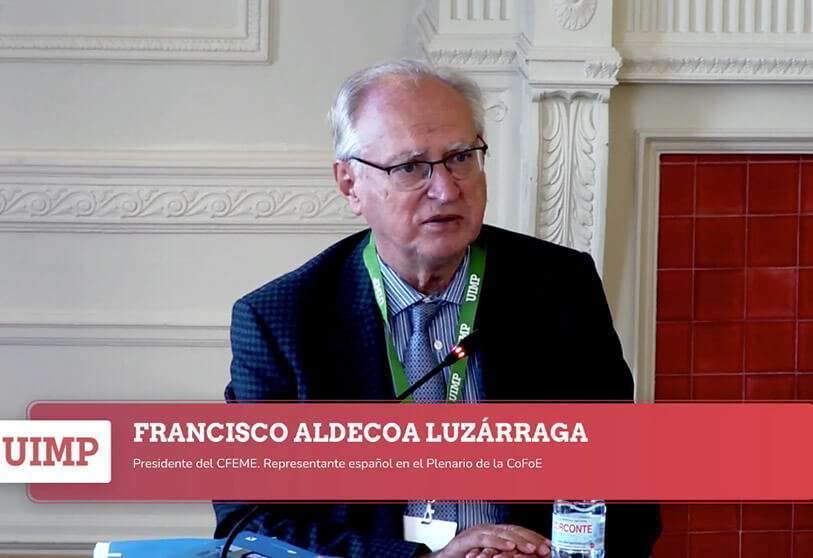
In this context, he remarked that we must "find formulas to overcome unanimity in foreign policy, even though we continue to work in the transatlantic sphere, it is clear that we cannot leave this to the Americans", pointing out that "we have had the euro crisis, the refugee crisis, the geopolitical crisis, Afghanistan shows us the direction for decision-making in Europe in a more efficient and democratic way".
In the same way, she indicated that "we have to complete it, we have to have institutions that allow us to act, and this requires that decisions in the Council be taken by qualified majority".
To conclude, the Councillor for the Presidency of the Government of Cantabria and representative of the Committee of the Regions at the Conference on the Future of Europe, Paula Fernández Viaña, stated that "the Parliament of Cantabria has been the chosen framework to carry out these citizens' debates, which raised their reflections on the Future of Europe and these will be included in a manifesto as part of a contribution that Cantabria will make to the Conference on the Future of Europe".

"Local and regional governments want to have more influence at European level on health, education, employment and other social issues," he said. In this way, Cantabria wants to strengthen "its presence in European bodies". Along these lines, Fernández explains that "the government of Cantabria will have a specific portal on the conference where citizens will be able to ask questions and express their opinions".
He added that Cantabria "is our best showcase, our embassy in the European Union" and is located in a strategic place, "at the heart of where decisions are taken in Europe", and this is where its relevance lies.









